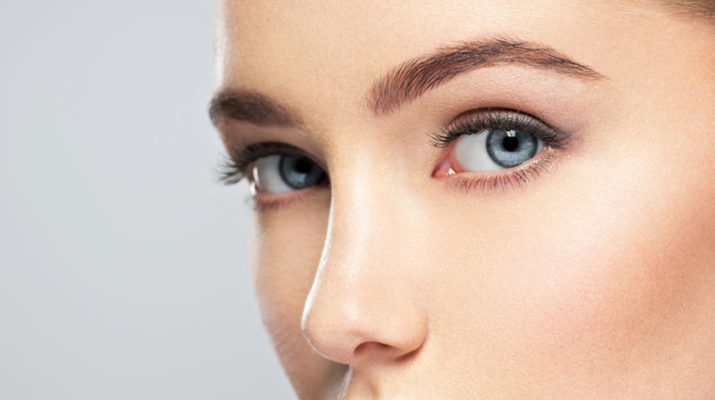Want that airbrushed look without a photo filter? Follow these tips from three area experts
By Deborah Jeanne Sergeant
Tips from Nananamibia Duffy, dermatologist with Rochester Regional Health:
• “Cleanse twice daily. Wash sweat off immediately after exercising so bacteria and yeast do not sit on the skin.
• “Use sunscreen.
• “Use a retinoid [prescription] or retinol daily to help stimulate cell turnover and boost collagen production.
• “If you are in your late 20s and beyond, consider a regular skin maintenance procedure like a no-downtime resurfacing laser — Clear and Brilliant is my favorite — which can be performed as often as every month to help maintain the skin integrity and get that glow back.”
Tips from Lori Ullman, dermatologist with University at Buffalo:
• “Sleep is important for generally healthy skin. When you sleep, your body repairs itself. Lack of sleep causes distress to our bodies.
• “The single most contributing factor to keeping your skin beautiful is protecting it from the sun’s harmful rays. Solar radiation is the biggest factor. When we chronically expose the skin, we get break down of collagen, the elastic fibers in the skin. It gives strength and elasticity. It results in rough, dry, irregular pigmentation, caused by dilated blood vessels. The real approach is for use of year-round sun protection. UVB tends to be more active 10 a.m. to 4 p.m. in April through October. But UVA is the same in January as July. It’s active as long as you don’t have to turn on artificial light. Use SPF of 30 or higher. I also recommend that chemical-free sun screens or sun blocks containing a physical sunscreen like zinc or titanium dioxide rather than chemical sun screens. Recent studies show the chemicals are absorbed in larger amounts than we previously thought and there are studies underway to study the potential affects. The physical sun blocks are micronized now so it’s not the old sunscreen where you look as white as a ghost.
• “Wear sun protective clothing like hats, sunglass, and clothing. Standard cotton is SPF 5. If you’re looking for sun protective clothing, purchase clothes that are rated as sun protective. Their fibers are more tightly woven. If it gets wet, change. Apply every two to three hours. Your own oils slough them off. Apply in the morning and afternoon and when you get out of the water.
• “Don’t smoke. The nicotine causes restriction of blood vessels, which decreases blood flow to the skin. Oxygen delivery is decreased, as is essential nutrient delivery, which contributes to premature aging unrelated to sun exposure. It contributes to breakdown of collagen and elastic fibers. It leads to sagging and coarse wrinkling. That lack of oxygen and nutrients leads to skin discoloration. Removing to this one factor will improve skin health.
• “Use gentle cleaners and avoid exfoliants and scrubs, which lead to inflammation. Use oil-free products. ‘Less is more’ is my motto. the products with fewer ingredients tend to be gentle and often have a good safety profile. Beautiful skin is healthy skin.”
Tips from Heather Carrera, doctor of clinical nutrition who works in the office Lesley James, MD in Pittsford:
• “It’s definitely going to be different for every individual.
• “Drink water for sure. If you’re not hydrated, wrinkles will be more prominent.
• “Eat healthy fats in your diet. It’s really affected by the fat. Fish oil, avocados and nuts help skin appear more supple.
• “When it’s more of a unique situation, food sensitivity can be a big issue. Determine if you have a food sensitivity and keep that food out of your diet. Definitely look for food sensitivities or to alcohol, caffeine.
• “Alcohol can cause skin conditions and acne.
• “If you just switched products, it may be external. If it’s the same products, look what you’re putting into your body. That’s usually the cause for adults.
• “There’s the role of toxins in the environment. Our liver is our major detoxification organ. If we’re taking in too many or we’re not able to get them out, that can cause skin conditions. The more research we do about chemicals in our environment, we can rule out the role toxins play.”

